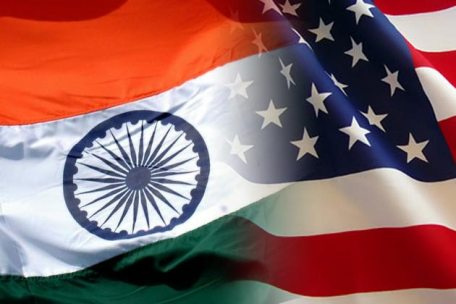India at the Iran-US Crossroads

During the last month, the US and the EU have begun making new attempts to put more pressures on Iran, among which the boycott of Iranian oil should be mentioned. They passed a boycott including not only on not purchasing Iran’s oil, but also they’ve encouraged other clients to do the same. Since by purchasing 400K barrels per day, India is known as one of the main clients of Iranian oil, the West pressures India to boycott that oil, while acceptance of the boycott and its realization by the Indian government depends on some factors, some of which are fixed and some variable, including:
1- The first important point in making such decision is the situation of the Indian refineries, some of which have been adapted to Iranian oil since several decades ago, and any change in this mode requires time and money. If the figures on the export of oil to the country are reviewed, it is evident that Iran has exported between 100-500K oil barrels per day during the last four decades, although this amount has undergone some fluctuations.
2- As the Indian ministry of finance has announced, India is not prepared to dramatically reduce its Iranian oil purchase; this stress shows that if a ceasing of the imports should take place, there is no way but to do it gradually.
3- The boycott of Iranian oil should be analyzed in the framework of US-Iran relations. In the last two decades, the position of the US has been improved in Indian foreign policy and consequently India has increasingly become more important in US foreign policy; as such any interaction between Washington and New Delhi can be imagined considering their increasing relations.
4- From about twenty years ago, India has placed economic development at the top of its national plans and reviewed all of its relations from this perspective, and it is noteworthy that any economic development is strongly dependent on energy, particularly on gas and oil. The boycott of Iranian oil by Europe will increase the international price to some extent, negatively affecting Indian economic development. Now, if India does not purchase Iranian oil, it will be obliged to turn to other limited producers to meet its oil needs; a measure that will be followed by a doubling of the oil price and a consequent double effect on the economy of the country, since India is the fourth oil consumer of the world with an annual 110 million tons of oil consumption.
5- In the oil market, the energy affairs experts argue that if Iranian oil is sanctioned, Iran will be forced to reduce its oil price. Considering its policy along with economic development, India will benefit from a preferential reception of Tehran’s oil, while the amount of its oil imports from Iran, 400K bpd, will not allow it to ignore this without achieving any concessions.
6- Considering the above-mentioned point, the question may be raised whether the demand of the US and Europe of India, China, South Korea and Japan can be bargained. Apparently so, in the current world of politics and economics. Interaction is a very serious and decisive issue, and the Indians know that they should not easily accede to the demands of the US and Europe: they may ask for a desirable price to oblige them for boycotting the Iranian oil. India, China and Russia are well aware of the importance of their accompaniment with the West in this boycott, and are surely asking for several concessions.
The outcome of all of these factors will decide the Indian government’s position. Therefore, a decrease or increase in Iranian oil purchases depends on how much the US and the West are inclined to pay India in exchange for the benefits lost in this boycott. In addition, the positive vote of New Delhi for the West’s UN resolutions should be heeded, while it was an interaction in their relations. In other words, it was the interaction with the US that caused the positive vote of the country for the resolution proposed by the West in the IAEA, according to which Iran’s case has been referred to the UN Security Council. Considering the status quo of US-India relations, we cannot be hopeful about the future, since New Delhi will decrease its oil purchases in interaction with Washington.

